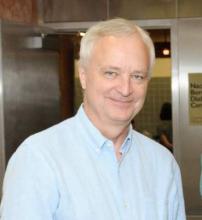The suit also names all SART-member fertility clinics and all egg agencies that agreed to abide by the ASRM-SART guidelines maximum price from April 12, 2007 to the present.
Also, in January 2015, the U.S. Tax Court ruled in favor of the Internal Revenue Service that $20,000 paid to a California woman for donating her eggs was compensation, not damages, and therefore taxable income.
The Kamakahi v. ASRM case is ongoing, but is already prompting some agencies to drop out of the ASRM, according to Andrew Vorzimer, a Woodland Hills, Calif., fertility lawyer. Mr. Vorzimer used to own Egg Donation Inc., but said he sold the Encino, Calif., infertility center in part because he could no longer compete with agencies who ignored the ASRM guidelines and were willing to offer six-figure payments for highly sought after donors. He continues to provide legal counsel to Egg Donation Inc.
“Most agencies ignore these guidelines anyway, so I think the likely result is, No. 1, that ASRM may simply withdraw all their guidelines and stay out of this entirely because they just don’t need the headache or liability, and you’re going to see the cost of egg donation skyrocket because the $10,000 dollar cap is going to go out the window,” Mr. Vorzimer said.
The IRS tax decision will also add upward pressure on egg prices because women are “going to want a larger amount to offset their tax liability,” he said.
Dr. Toner said that if the antitrust argument prevails in the courts, “...then I think the profession would stop providing guidance about reimbursement.”
Compensation, however, would be unlikely to take off. Even with the $10,000 cap in place, the going rate for eggs in Atlanta is about $6,000 per cycle. Few recipients, who ultimately pay the bill, would seek fertility treatment if the cost of eggs suddenly jumped from $6,000 to $30,000, he said. This downward pressure on the market is already being seen in states without insurance treatment mandates, whereas the “utilization of fertilization services is double or triple in states with coverage mandates,” Dr. Toner said.
Online ads may not include all the necessary information needed by donors, but “where the rubber hits the road” is in the clinic, he said, adding: “The profession has done a laudable job when it comes to egg donors. They are fully informed, treated as patients and fairly compensated for their time and effort.”
The new report from Dr. Levine and his colleagues discusses various possible oversight models, but ultimately balks at recommending federal or state laws or regulations. The authors conclude that improved self-regulation is the “most appropriate first step,” given the absence of compelling evidence of harm to donors associated with potential conflicts and feasibility concerns associated with other oversight models.
“Everyone is clamoring for more regulation,” said Dr. Mark V. Sauer, a member of ASRM’s Ethics Committee and director of Columbia’s Center for Women’s Reproductive Care. But he contended that the practice of reproductive medicine is probably already the most regulated form of medicine in the country. Moreover, the ASRM, not unlike the American Medical Association, is “not a policing professional society. They’re not a regulatory society,” he said.
Dr. Sauer declined to comment on the Kamakahi case, but said compensation rates in the highly competitive market of New York City have settled over the last 5 years at about $8,000 – the amount Columbia pays per cycle.




